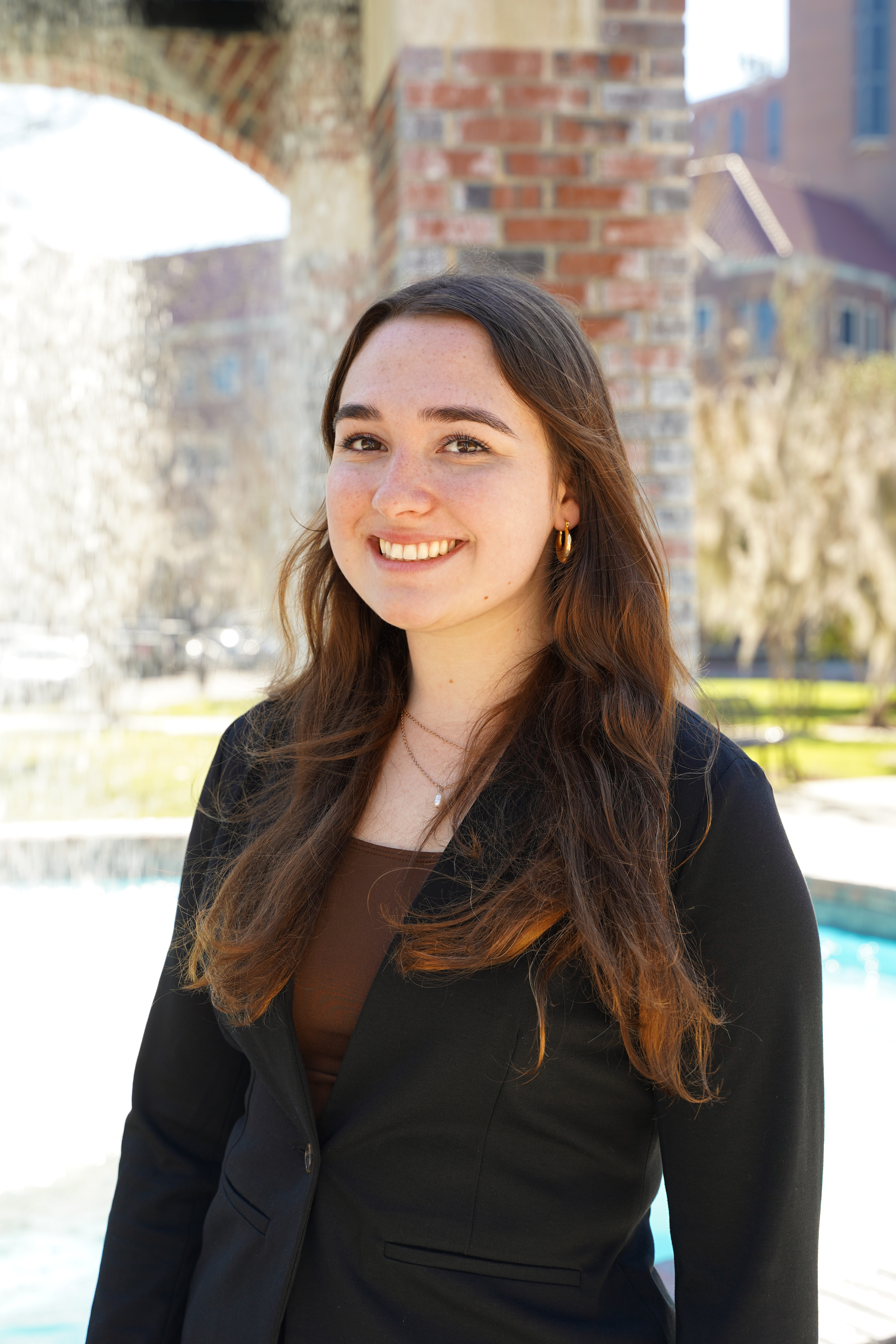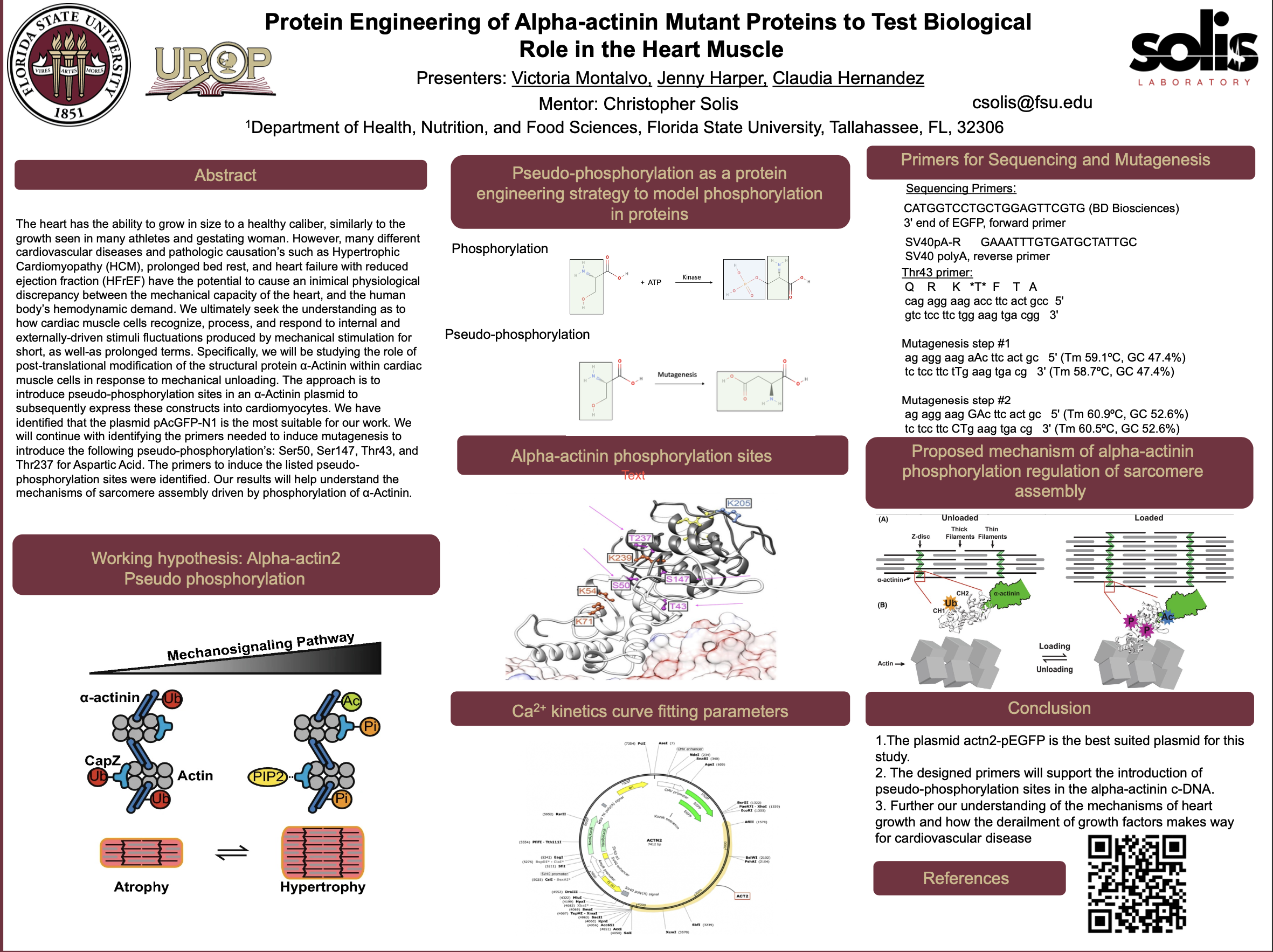Research Symposium
24th annual Undergraduate Research Symposium, April 3, 2024
Jenny Harper Poster Session 3: 1:30 pm - 2:30 pm /222

BIO
I was born and grew up in Pembroke Pines, Florida, graduating from Pembroke Pines Charter High School in the year 2022. I am currently attending Florida State University and am striving for a bachelors degree in Biology. I hope to attend medical school after college and specialize in anesthesiology. I am currently interested in research relating to topics of the cardiovascular system.
Protein Engineering of Alpha-actinin Mutant Proteins to Test Biological Role in the Heart Muscle
Authors: Jenny Harper, Christopher SolisStudent Major: Biology
Mentor: Christopher Solis
Mentor's Department: Department of Heath, Nutrition, and Food Sciences Mentor's College: College of Health and Human Sciences Co-Presenters: Victoria Montalvo and Claudia Hernandez
Abstract
The heart has the ability to grow in size to a healthy caliber, similarly to the growth seen in many athletes and gestating woman. However, many different cardiovascular diseases and pathologic causation’s such as Hypertrophic Cardiomyopathy (HCM), prolonged bed rest, and heart failure with reduced ejection fraction (HFrEF) have the potential to cause an inimical physiological discrepancy between the mechanical capacity of the heart, and the human body’s hemodynamic demand. We ultimately seek the understanding as to how cardiac muscle cells recognize, process, and respond to internal and externally-driven stimuli fluctuations produced by mechanical stimulation for short, as well-as prolonged terms. Specifically, we will be studying the role of post-translational modification of the structural protein α-Actinin within cardiac muscle cells in response to mechanical unloading. The approach is to introduce pseudo-phosphorylation sites in an α-Actinin plasmid to subsequently express these constructs into cardiomyocytes. We have identified that the plasmid pAcGFP-N1 is the most suitable for our work. We will continue with identifying the primers needed to induce mutagenesis to introduce the following pseudo-phosphorylation’s: Ser50, Ser147, Thr43, and Thr237 for Aspartic Acid. The primers to induce the listed pseudo-phosphorylation sites were identified. Our results will help understand the mechanisms of sarcomere assembly driven by phosphorylation of α-Actinin.
Keywords: Protein, Engineering, Heart

